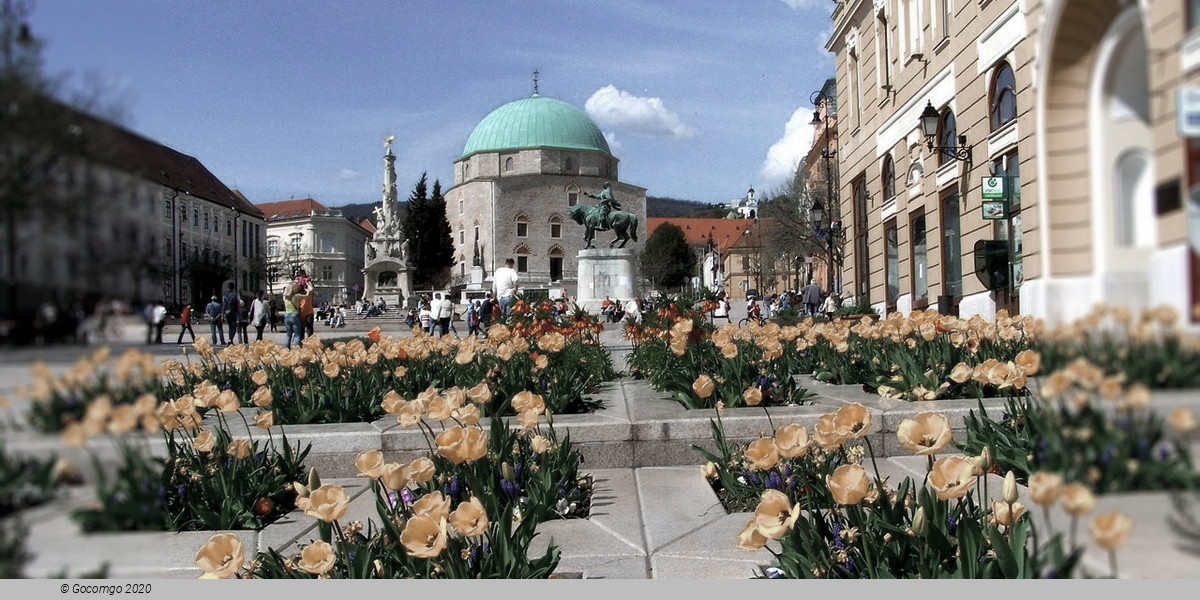Pécs

Pécs is the fifth largest city of Hungary, located on the slopes of the Mecsek mountains in the south-west of the country, close to its border with Croatia. It is the administrative and economic centre of Baranya County. Pécs is also the seat of the Roman Catholic Diocese of Pécs.
The city Sopianae was founded by Romans at the beginning of the 2nd century, in an area peopled by Celts and Pannoni tribes. By the 4th century, it became the capital of Valeria province and a significant early Christian center. The early Christian necropolis from that era became a UNESCO World Heritage Site in December 2000.
Its episcopate was founded in 1009 by Stephen I, and the first university in Hungary was founded in Pécs in 1367 by Louis I the Great. (The largest university still resides in Pécs with about 34,000 students). Pécs was formed into one of the cultural and arts center of the country by bishop Janus Pannonius, great humanist poet.
Pécs has a rich heritage from the age of a 150-year-long Ottoman occupation, like the mosque of Pasha Qasim the Victorious on Széchenyi square, the Tomb of İdris Baba, and the Yakovalı Hasan Paşa Mosque. The Ottoman chronicler İbrahim Peçevi (Ibrahim of Pécs), whose work forms the main body of reference for Ottoman history between 1520-1640, was a native of the city.

